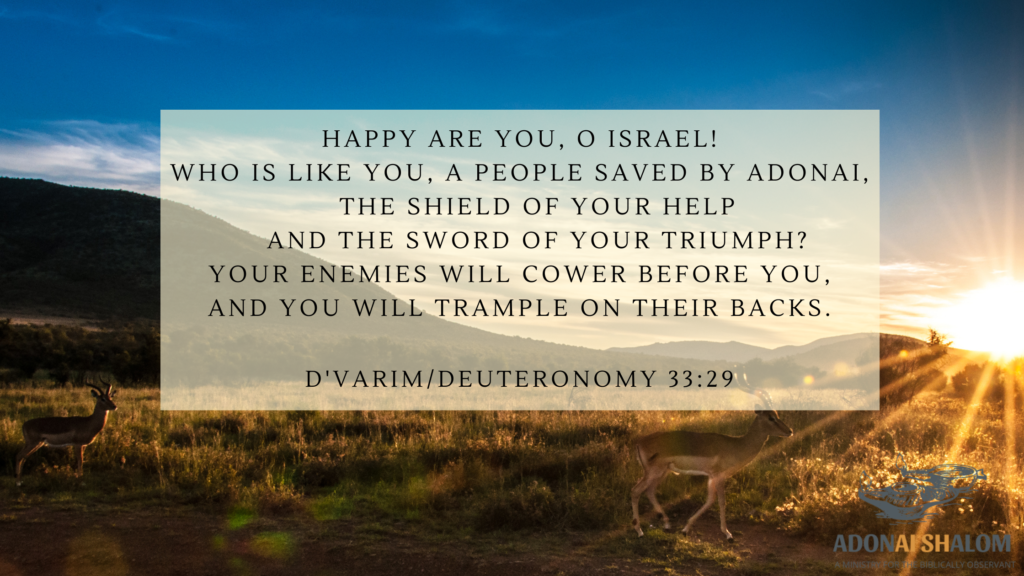Conclusion of D’varim/Deuteronomy
Parashot Nitzavim (D’varim/Deuteronomy 29:9-30), V’Yelech (D’varim/Deuteronomy 31), Ha’Azinu (D’varim/Deuteronomy 32), V’Zot HaBrachah (D’varim/Deuteronomy 33-34) 5783 B”H
We have reached the end of Deuteronomy and Sukkot is upon us. Soon it will be Simchat Torah and the Torah reading cycle will begin again.
I have been very busy these past few weeks with the High Holidays, and admit I simply do not have the time to adequately address all four of these remaining parashot for the year as I would like. My hope is to revisit these in early autumn of next year to give a much more thorough look at these passages.
In the meantime, if you have questions about these passages or would like to study further, please do not hesitate to contact me!
Meanwhile, let me leave you with a few thoughts:
Nitzavim
Nitzavim begins by addressing the profound reality of the entirety of Israel standing before ADONAI their God. They are to cross over into the covenant (Deuteronomy 29:11).
V’Yelech
The necessity to make the faith their own – to genuinely embrace the faith was so very critical because as we learn in V’Yelech, Moshe has reached 120 years old! (Deuteronomy 30:2)
Did you know Moses was a songwriter? He taught the children of Israel a song just before his death. It is actually the final song in Torah. Moshe knew many in Israel would fall away and sin, acting “corruptly,” and the song reflects that view:
Honestly, one would expect a more cheerful ending, but . . . speaking of honesty – Moses was honest. He knew how quickly people can choose to betray and go astray. He lived 120 years, so he had seen the lamentable truth that many would not continue in faith.
Ha’Azinu
This song of Moses is a bit enigmatic. Our natural tendency as believers and followers of Messiah is to “look on the bright side.” Find something positive and hopeful. But this song really never gets there and translators debate the true meaning, especially of the final verses.
While Moshe asserts “[he] will proclaim ADONAI’s Name and ascribe greatness to our God (Deuteronomy 32:3)” he does not offer a reassurance that the people of Israel will do the same.
On the contrary, he raises questions:
V’Zot HaBrachah
Despite the unusual song, Moshe does bless the people – by tribes – prior to his death. This blessing takes a much more triumphant tone:

The LORD so faithfully kept His promises to Moses that He showed him the Promised Land from afar. Moshe died in Moab, but no one knows where (Deuteronomy 34:6). Yehoshua (Joshua) took over as leader from there. Never again in Israel was there another prophet quite like Moses (Deuteronomy 34:10) but One-Greater-than-Moses would arise and change history for ever: Yeshua haMashiach.
I am thankful that you have studied these passages of Scripture with us. I pray you had a wonderful Yom Teruah, and a prayerful Yom Kippur. As we draw near to Sukkot, may your celebrations be full of joy as commanded, and full of peace as well. Shalom!